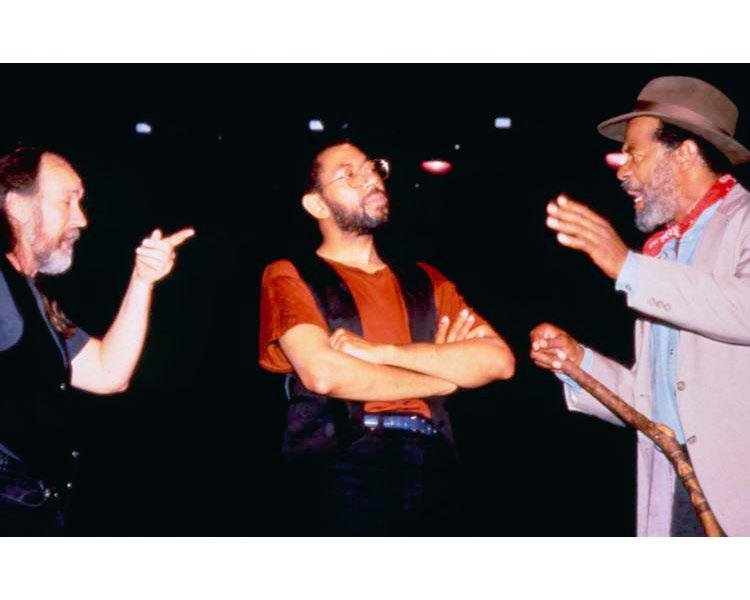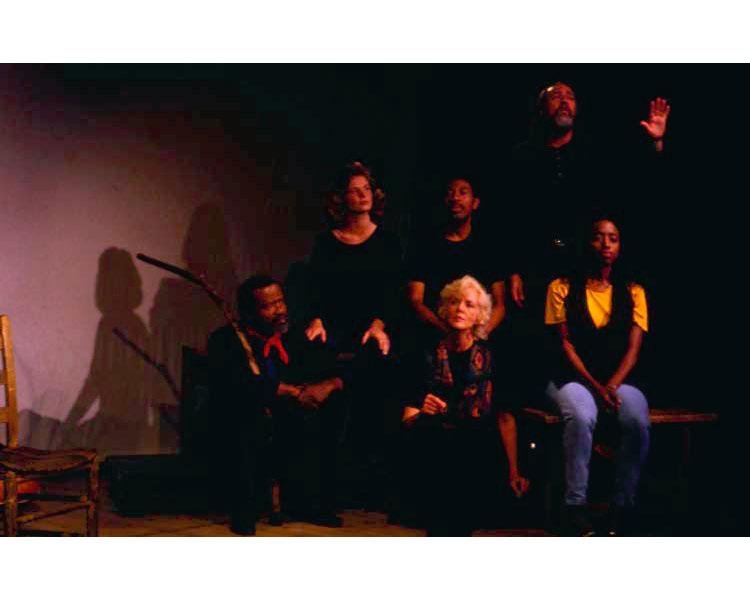
Junebug/Jack
1997 - Roadside Theater & Junebug Productions
A 30-year cultural exchange, performance, playwriting, and national touring collaboration between Junebug Productions of New Orleans, Theresa Holden of Austin, and Roadside Theater
In response to increasing Ku Klux Klan activity in the South in 1981, Roadside and Junebug Productions, the successor to the Civil Rights Movement's Free Southern Theater, began visiting and performing for each other's home audiences – one predominately white, the other black, both low to moderate income.
This approach helped the companies learn about each other's culture, community, audience, repertoire-based aesthetic, and creation and producing practice. Hearing in 1990 from some of its audience members that racism was on the rise in their southern communities, Junebug and Roadside decided to create and tour a musical play about the historical relationship between black and white poor and working class people in the South.
The two theaters agreed the play would span the time from the African slave trade and the first landing of European indentured servants to the end of the Vietnam War. To build a foundation for the play, the two ensembles sat together in circles telling each other personal stories about their experience with race, place, and class.
The circles helped the artists better hear each other and themselves, and as they began to realize their differences and similarities, they were better able to understand their separate and shared histories and current social circumstances. After arriving at a script that they felt was real and testing it and revising it with home audiences in Louisiana and Kentucky, Junebug and Roadside set about touring the musical play Junebug/Jack.
Holden Arts and Associates (the two companies' booking and producing partner) worked with Junebug and Roadside to find sponsors who thought their community was ready to think about race and class. As the tour progressed, the trick became how to get black and white working class and poor people to attend together, for In the main, such folks don't hang out together, much less go to professional theater.
In Junebug/Jack the biggest catharsis didn't occur during the play but in the community’s telling of their own stories. Roadside’s national challenge was shifting from attracting a diverse audience to making sure that diverse audiences had a say about their local arts programs and a voice in the cultural development of their community.
Junebug/Jack toured nationally for eight years. The collaboration spurred the further development of Roadside's, Junebug's, and Holden Arts and Associates' community cultural development residencies.
Commentary
-
“Rather than recycling warm platitudes or shaking angry fists, Junebug/Jack demonstrates a sensitivity to black-white differences while also highlighting some of those areas where traditions, legends, experiences, interests and even music overlap.”
The Times-Picayune, New Orleans , LA
-
“With a minimum of stage props – a wooden bench, a couple of chairs, a table covered with a patchwork quilt, and a fiddle, banjo and guitar – the cast of Junebug/Jack brought stories from both cultures to life with sincerity and artful skill.”
The Times, St. Petersburg, FL




















